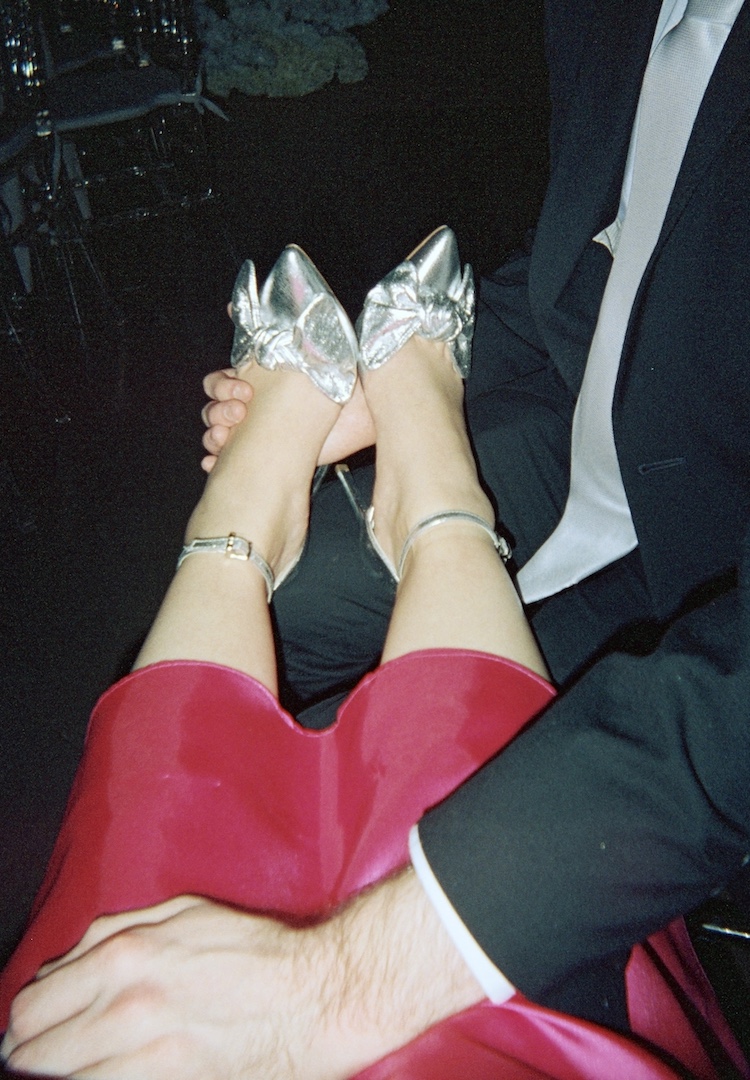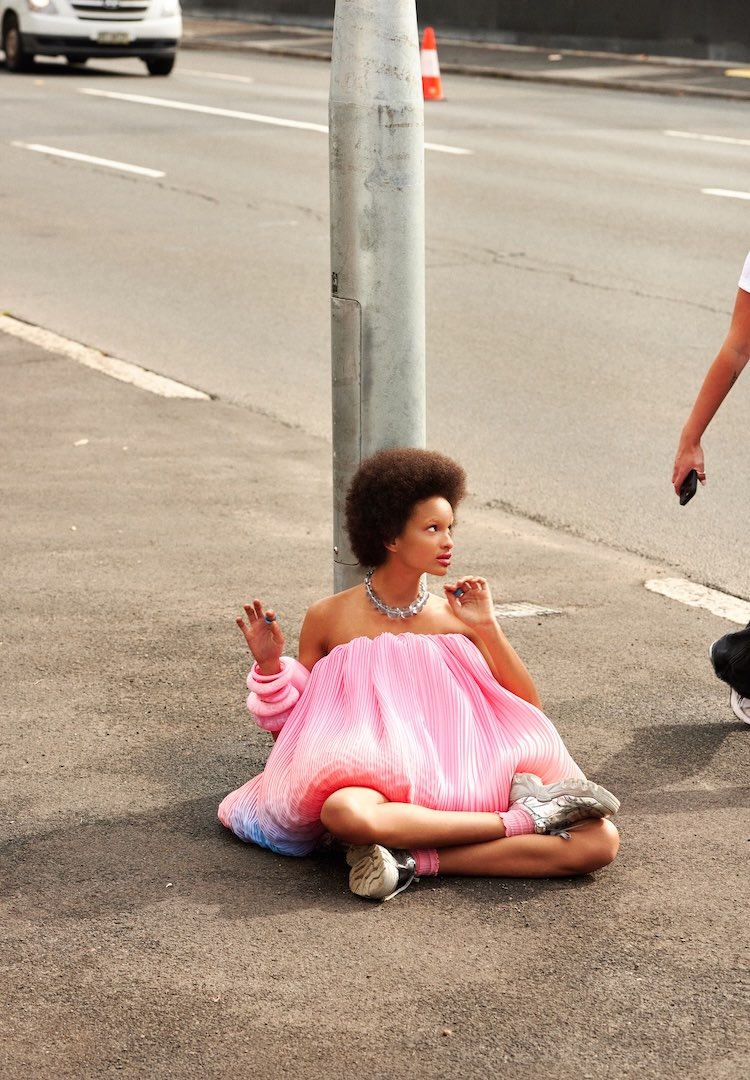What it’s really like working in a male-dominated industry
WORDS BY Rosemarie Hollis
“There are also the more insidious ways in which misogyny makes itself known. No one does the dishes – at least, no man does.”
My co-worker is unleashing a spiel of expletives. He doesn’t realise I’m behind him (not that I care about swearing) and his mate hits him on the arm. “Language in front of the lady!” he scolds, and winks at me.
Later that day, another co-worker will refer to me as “sweetheart”. Another will place a hand on my lower back to move past me without asking for consent to touch me. These frustrating moments are not uncommon for me in the workplace.
For more content like this, browse through our Life section.
I work in an industry that is typically male-dominated. There are approximately 35 people in my workplace and of that, only five are women. I won’t disclose which industry, so let’s just say, for the purposes of this article, that I work in ‘construction’.
I’ve worked in male-dominated offices before. I worked in an accountancy firm where the ratio of male to female workers was similarly skewed. But I’ve noticed a difference in how the boys club mentality operates – for example, at the accountancy firm much of the wink-wink-nudge-nudge comments and toxic behaviour happened behind closed doors and during long lunches.
It’s different in construction. There’s an overt ‘bro’ atmosphere. Often, I feel like I’ve been transplanted into a men’s locker room. The men will openly disparage women’s appearances – women who are usually clients of the construction firm. There will be a string of racist, sexist, and often fatphobic comments.
The banter – and I use this term loosely – reeks of one-upmanship. It seems like it’s a challenge to see who can make the worst comment. The men will call out swearing in front of me, but degrading comments about other women are apparently fine.
There are also the more insidious ways in which misogyny makes itself known. No one does the dishes – at least, no man does. The same female co-worker usually relents after two or three days of it stacking up and cleans the kitchen. She shrugs and smiles when I question her about it.
“Oh, they’re just like little children,” she laughs. “You know how it is.” I do know how it is; I too find myself regularly tidying up around the place when co-workers have torn into stationary packaging and left the rubbish lying around. It’s just another example of the silent, often unnoticed type of labour that is usually left to women in the workplace.
I speak to Nadia*, 30, who works a sales job for an alcohol company. It’s a field that is similarly dominated by men. For her, a lot of the frustration emerges in the interactions with clients.
“There are activities that are organised for us to bond with the customers,” she tells me. “All of them are things like golfing and rugby games – just real ‘bro’ stuff.”
Of course, women can enjoy these activities as well, but Nadia is not one of them. “I’m not interested,” she rolls her eyes. “But if I don’t go, it’s like I miss out on a networking opportunity.”
She tells me about visiting pubs and bars to speak to the owners and pitch sales. She says she’s walked in during the day and been the only woman in the bar.
“Except sometimes there’s also skimpies as well,” she says, referring to the colloquial term for women who usually serve drinks topless or in bikinis or lingerie. “Immediately they assume I’m also a skimpy. Doesn’t even cross their mind that I’m the sales rep.”
When I talk to her about the ‘long lunch boy’s club‘ of the accountancy firm, Nadia can relate. “I worked in a sales company a while back where they had an actual club,” she says. “It had a name and everything. You had to be invited to join and it was strictly men only. They’d go for long lunches in the middle of the day and come back hammered.
“It was a big bro club; they’d only invite new people in who they deemed as ‘cool’ and nine times out of ten it’d be because they played rugby or sport or something. They even had an initiation and a song.”
We talk about how it feels to overhear and be subjected to sexist comments. From my perspective, often I’m not the recipient of the comment, but an uncomfortable observer. It’s a difficult situation. I rely on my job for financial stability and find myself having to stay silent for fear of rocking the boat.
“Yeah of course,” Nadia agrees. “It’s a survival mechanism. And it’s just… I’ve had comments, inappropriate ones [directed at me] but when you think about making a complaint or taking it further… The structures that they have [in workplaces] just make it so difficult. Other women in my workplace have lodged complaints and seeing what they were dragged through…”
Nadia’s comment about the structures that exist within workplaces strikes a chord with me. Departments like human resources and authority figures like managers are supposed to be your avenues for protection. But sometimes they can seem like a part of a wider system that is designed to protect the abuser, with endless bureaucratic hoops you have to leap through just to take a complaint further.
There are other ways that working in a male-dominated office keeps you quiet. It may seem frivolous in the larger scheme of talking about unwanted sexual comments, but the attitude that men can have towards ‘girly things’ can be stifling. Anytime that I read a book in the lunchroom, someone will inevitably ask if it’s “Mills & Boon”.
On coffee runs, the guys will scoff and refuse to buy a drink containing “girly milk” (almond, rice, soy etc). You get the picture. These little things add up to make me feel like I’m an outsider in the workplace.
“It’s not all bad though,” Nadia concedes. “I always know where I stand with the guys. They’re all straightforward, straight-talking. Even if some of that straight-talking is straight-up bullshit misogyny.”
I do agree; the guys at my workplace are upfront about everything. There are moments of wanting to learn as well. A co-worker once worriedly asked me how to refer to myself and another woman in an email – “Do I call you ‘girls’ or ‘women’? Is saying ‘girls’ bad now?”. I enjoy the moments I can educate my co-workers, in hopes that it makes it a little easier for the next woman after me.
I like the work that I do and for that reason, I don’t want to leave this industry. But I know I’m not the only one who can feel exhausted existing as a woman in a career where you are in the minority, performing your job role within structures that feel like they aren’t made for you.
*Name changed to protect privacy.
For advice on how to deal with sexism in the workplace, head here.













